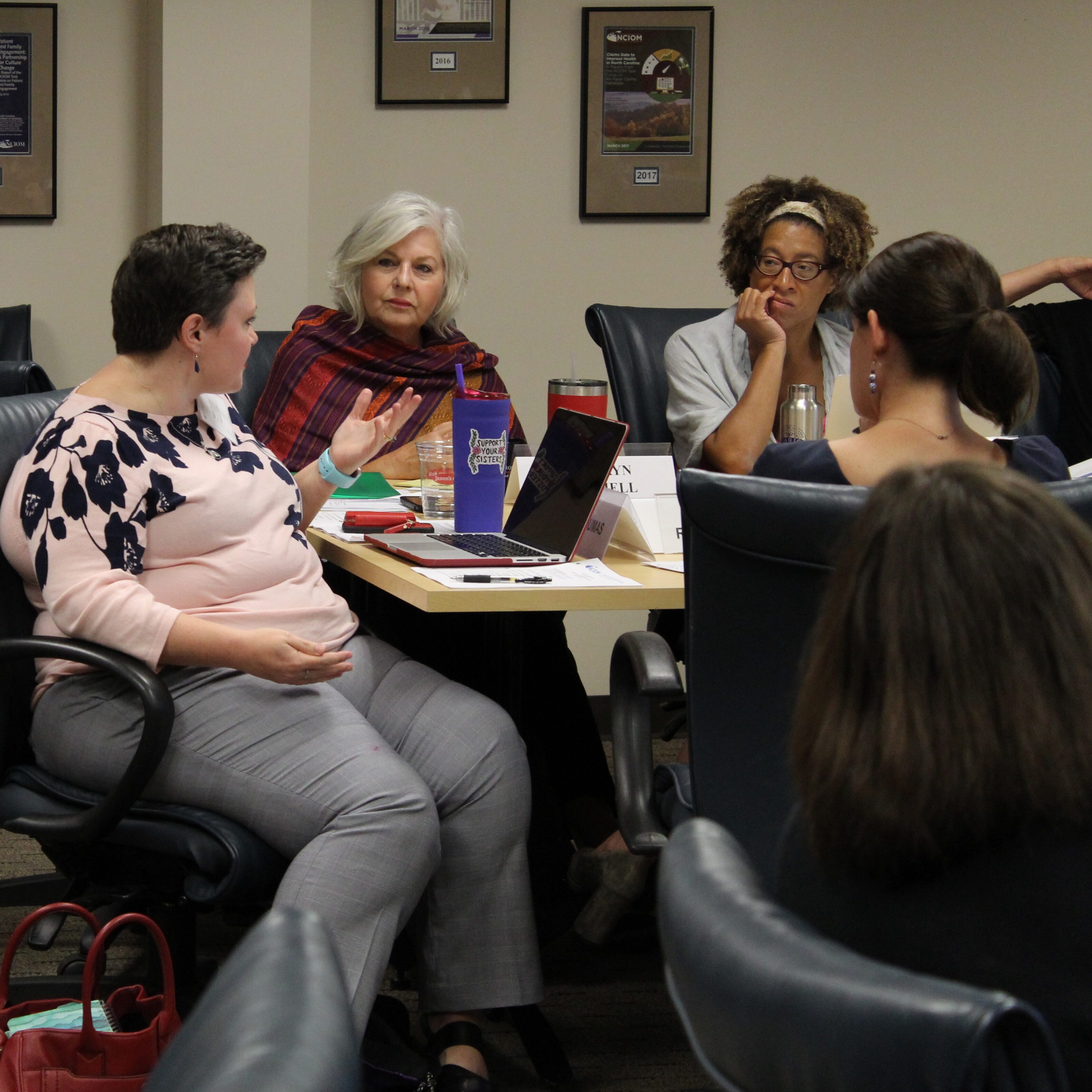


Written by Robert Kurzydlowski, Project Director
At our July 29th, 2019 Task Force meeting on Developing a Risk Appropriate Perinatal System of Care in North Carolina, members received an update on the current status of the SAVE Act (SB 143/HB185), a bill that seeks to move regulation of nurse practitioner state practice and licensure laws to the Board of Nursing, rather than under the Nurse Practitioner Joint Subcommittee, which is composed of members of the Board of Nursing and members of the Medical Board. Such a change would likely lead to the elimination of current restrictions on the practice authority of advanced practice registered nurses, including certified nurse midwives.
The National Academies of Medicine recommends that scope-of-practice barriers, including the requirement for physician supervision, be removed and state practice and licensure laws be established under the exclusive licensure authority of the state board of nursing. North Carolina is one of twelve states that restrict the practice authority of nurses, requiring nurse practitioners to have a supervising physician.[1]
The task force members heard from stakeholders on both sides of this specific bill, as well as underlying reasons for support or opposition to the spirit of this bill. Representatives from the North Carolina Medical Society, Sue Ann Forrest and Chip Bagget, joined our task force meeting to discuss their opposition to the SAVE Act, focusing on the importance of physician-led team-based care [1]. They presented survey results showing that patients believe it is important for a physician to lead their health care and that a physician’s education plays an important role in providing care. They also argued that the landscape of North Carolina’s health systems is not conducive to providing team-based care in rural settings, with one reason being a lack of pathways in place to transfer patients needing emergent care to facilities that provide a higher level of care.
Ami Goldstein, president of the N.C. Chapter of the American College of Nurse Midwives (NC-ACNM), joined us to share a proponent’s perspective on the SAVE Act and the importance of certified nurse midwives (CNMs) having full practice authority (not a change in their scope of practice) [2]. Currently, in North Carolina, CNMs can only practice under the supervision of a physician. NC-ACNM believes that there are quality and safety standards already in place to protect patients through CNM licensure, training, and professional accountability standards. They argued that full practice authority would allow CNMs to provide care under NC-ACNM-advocated polices that ensure access to appropriate levels of care for all women. The American College of Obstetricians and Gynecologists issued a joint statement with ACNM which supports NC–ACNM position [3]. Goldstein shared data to support that care by a nurse midwife is at least as safe as care by a physician. And from ECUs CNM program (the only accredited program in NC), graduates choose to work in rural communities in NC at higher rates that graduates from obstetric residency programs [4].
The SAVE Act is still alive in the current legislative session and can also be considered during next year’s short session. Both sets of presenters acknowledged the success these two sides had while working together on the Birth Center Licensure Act bill. Furthermore, representatives from the N.C. Medical Society and the N.C. Chapter of the American College of Nurse Midwives will continue to work with this NCIOM task force to improve maternal and infant outcomes in North Carolina.
[1] https://www.ama-assn.org/practice-management/payment-delivery-models/physician-led-team-based-care
[2] Full practice authority is being defined as: allowing CNM’s to practice to the full extent of their education, training, experience and licensure.
[3] https://www.midwife.org/ACNM-and-ACOG-annouce-new-joint-statement
[4] Rebecca Bagley, Director of East Carolina University Midwifery Program (East Carolina University’s CNM program has data showing that 80% of their graduates remain in NC and that 50% of those graduates’ work as CNMs in rural areas).